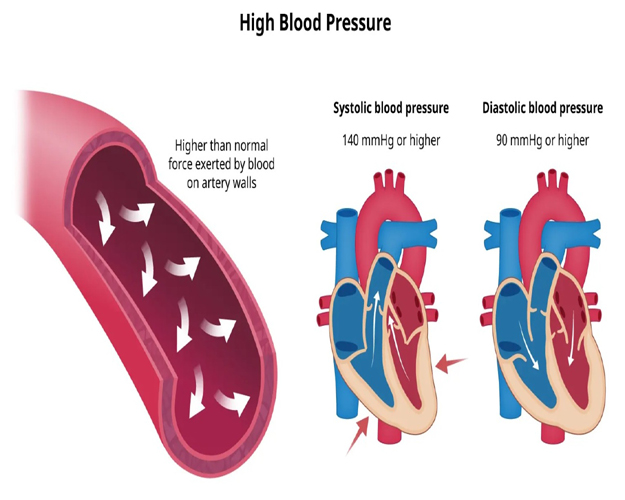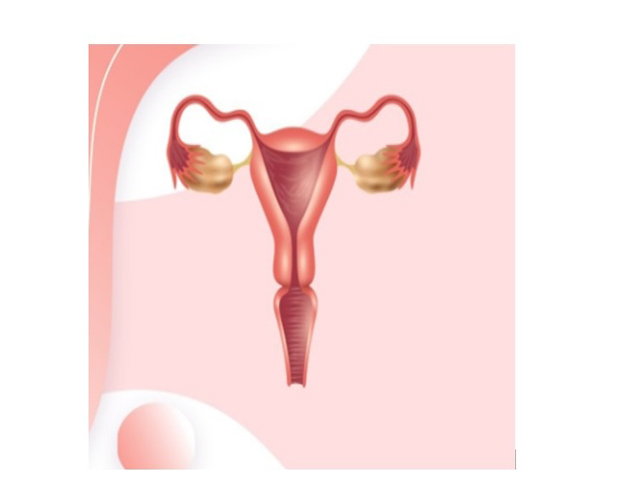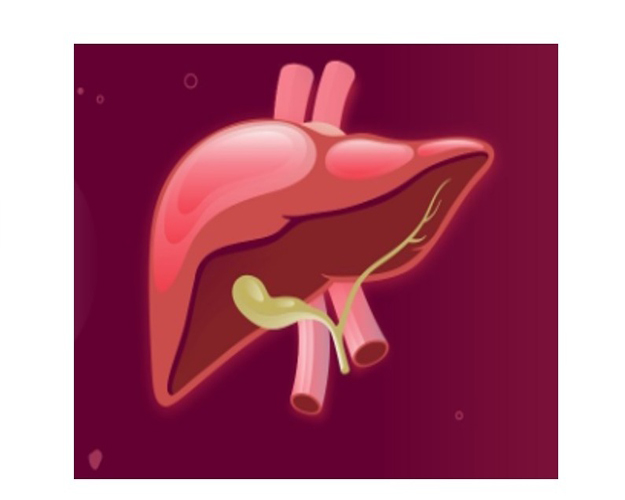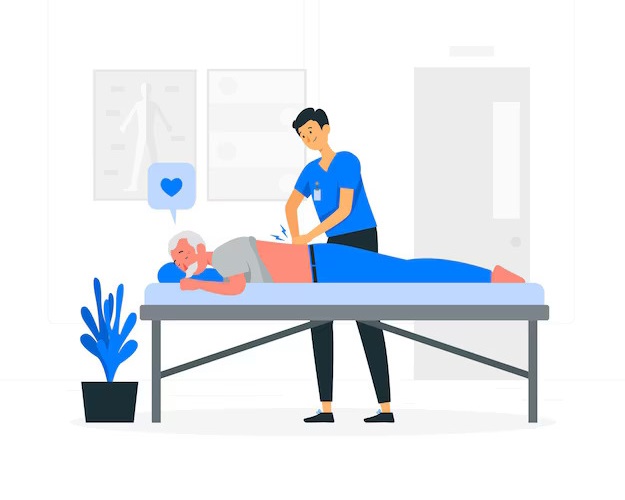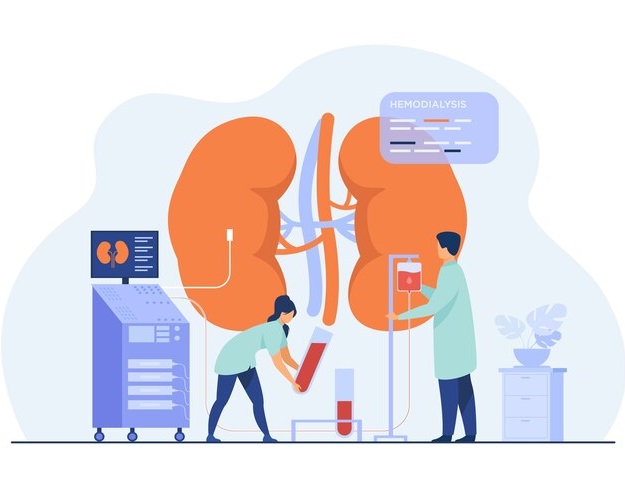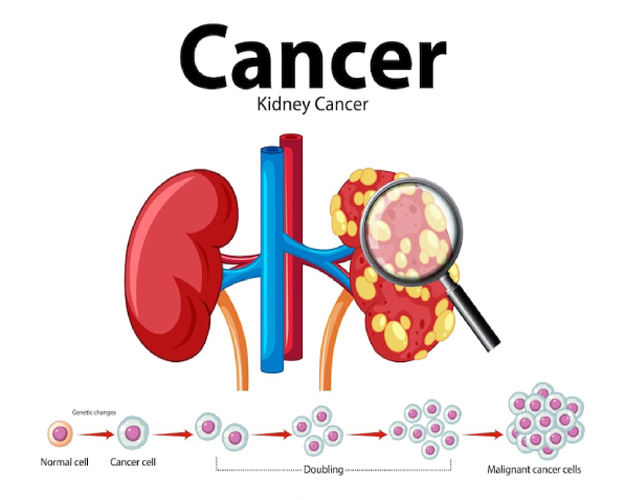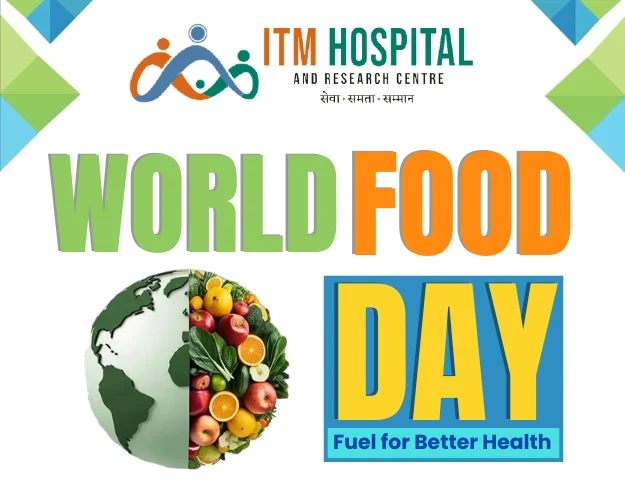
Nourish to Flourish: The Power of a Balanced Diet on World Food Day
Introduction: Celebrating World Food Day with Purpose
Every year on October 16, the world comes together to celebrate World Food Day — a global call to action against hunger and malnutrition. This year’s theme emphasizes making nutritious food accessible to all, inspiring us to rethink how we eat, share, and sustain food resources.
At ITM Hospital and Research Centre, Gwalior, we believe that health begins on the plate. A balanced diet is not just about eating enough; it’s about eating right — providing your body with the nutrients it needs to function effectively and prevent diseases.
What is a Balanced Diet?
A balanced diet includes a variety of foods in the right proportions to supply essential nutrients such as carbohydrates, proteins, fats, vitamins, and minerals. It supports energy, immunity, growth, and mental well‑being.
The five main food groups form the foundation of balanced nutrition:
1. Fruits and vegetables: Rich in fiber, antioxidants, and vitamins that protect against chronic diseases.
2. Whole grains: Such as brown rice, oats, and whole wheat, which provide energy and aid digestion.
3. Protein sources: Including lean meat, fish, pulses, legumes, tofu, and eggs for cell repair and immunity.
4. Dairy or alternatives: Calcium-rich foods that strengthen bones and teeth.
5. Healthy fats: From nuts, seeds, olive oil, and avocados for brain and heart health.
To stay healthy, half your plate should consist of fruits and vegetables, a quarter of whole grains, and a quarter of protein sources.
The Importance of a Balanced Diet
1. Boosts Immunity: Vitamins A, C, and E, along with zinc and selenium, help the immune system defend against infections.
2. Maintains Energy Levels: Carbohydrates supply fuel, while proteins maintain muscle health and recovery.
3. Supports Mental Health: Omega‑3 fatty acids, B‑vitamins, and iron improve concentration, reduce stress, and enhance mood.
4. Promotes Healthy Weight: Balanced portions and mindful eating prevent obesity and maintain metabolic balance.
5. Prevents Chronic Diseases: Proper nutrition lowers the risk of diabetes, hypertension, heart disease, and certain cancers.
6. Balanced nutrition is not just a dietary habit — it’s a lifestyle choice that promotes long‑term well‑being.
Common Signs of Unbalanced Eating
1. Frequent fatigue and low energy
2. Weak immune system and frequent infections
3. Sudden weight gain or loss
4. Poor concentration or irritability
5. Hair loss, brittle nails, or dull skin
If you experience these symptoms, your diet may be lacking essential nutrients. Consult a nutrition specialist at ITM Hospital to create a personalized meal plan that meets your health needs.
Tips for Maintaining a Balanced Diet
1. Start your day right: Eat a wholesome breakfast rich in fiber and protein.
2. Portion control: Avoid overeating; use smaller plates to manage portion sizes.
3. Stay hydrated: Drink 8–10 glasses of water daily to support digestion and detoxification.
4. Limit sugar and salt: Cut down on processed foods, sugary drinks, and excess sodium.
5. Include seasonal foods: Fresh, local produce retains more nutrients and supports local farmers.
6. Mindful eating: Chew slowly, focus on taste and texture, and appreciate every meal.
For children and older adults, nutritional needs vary, so tailor your meals accordingly with the advice of healthcare professionals.
Balanced Diet for Different Life Stages
Children: Require protein, calcium, iron, and vitamins to support growth. Include milk, eggs, fruits, and vegetables in daily meals.
Adults: Need a balance of carbohydrates, lean proteins, and healthy fats to sustain energy and prevent diseases.
Elderly: Should focus on soft, fiber-rich, easily digestible foods; include fruits, soups, and light dals for better nourishment.
Each stage of life demands special attention to nutrition — the key is balance and moderation.
World Food Day: A Global Reminder
World Food Day reminds us that while millions suffer from hunger, many face lifestyle diseases due to overconsumption or poor diet choices. This contrast highlights the urgent need for sustainable eating practices and food equity.
We can make a difference by:
1. Reducing food waste
2. Sharing surplus food with those in need
3. Supporting sustainable agriculture
4. Teaching children the value of nutrition and food conservation
By doing so, we nourish not only ourselves but also our communities and the planet.
ITM Hospital and Research Centre, Gwalior: Your Partner in Nutrition and Wellness
At ITM Hospital, Gwalior, our expert nutritionists and dietitians design customized diet plans for patients with diabetes, heart disease, obesity, and other lifestyle disorders. We focus on preventive healthcare, ensuring every individual understands the role of nutrition in building long‑term health.
Our hospital promotes community health awareness programs that educate families on meal planning, balanced diets, and healthy lifestyle choices.
Conclusion
On this World Food Day, let’s pledge to make every meal count. A balanced diet is more than food on the table — it’s a step toward a healthier world.
As the saying goes, “We truly are what we eat.” By choosing nutrient-rich foods and mindful eating habits, we invest in our health, our future, and our society.
Let’s celebrate the power of good nutrition and spread awareness about the importance of a balanced diet — because when we nourish well, we live well.

